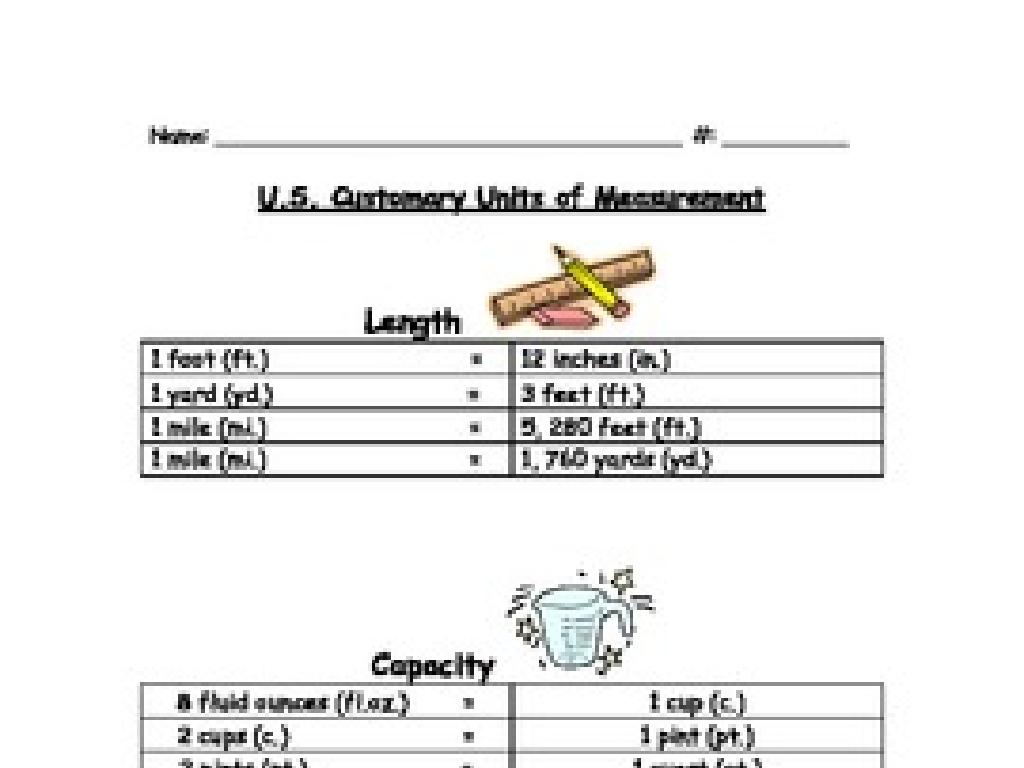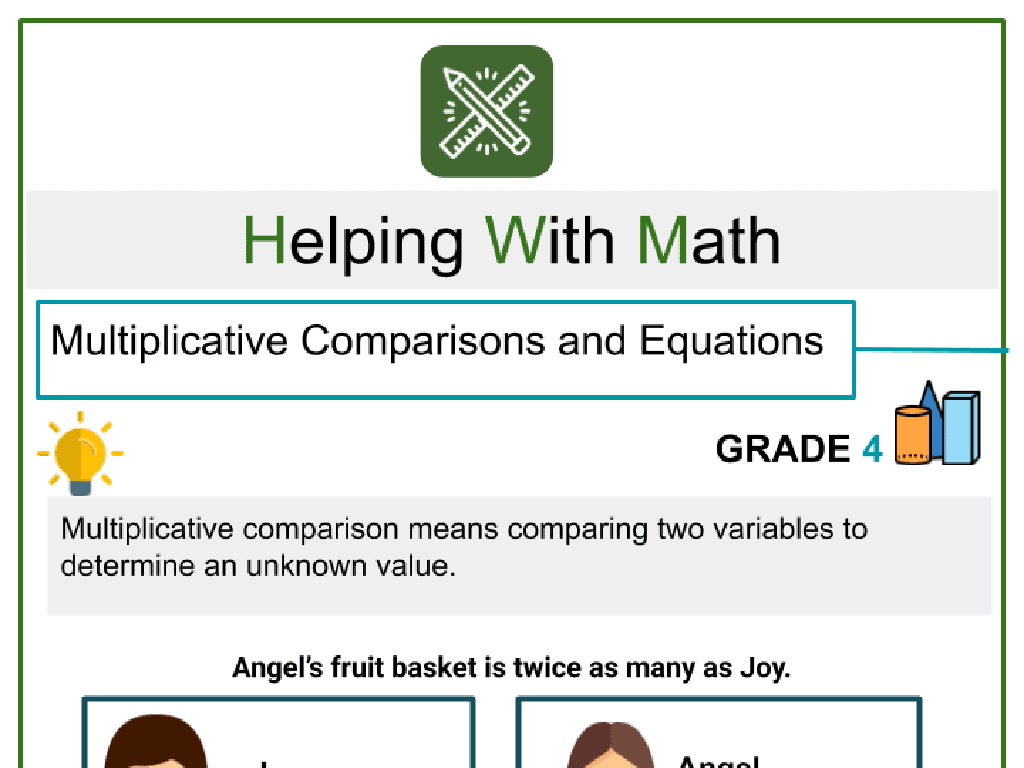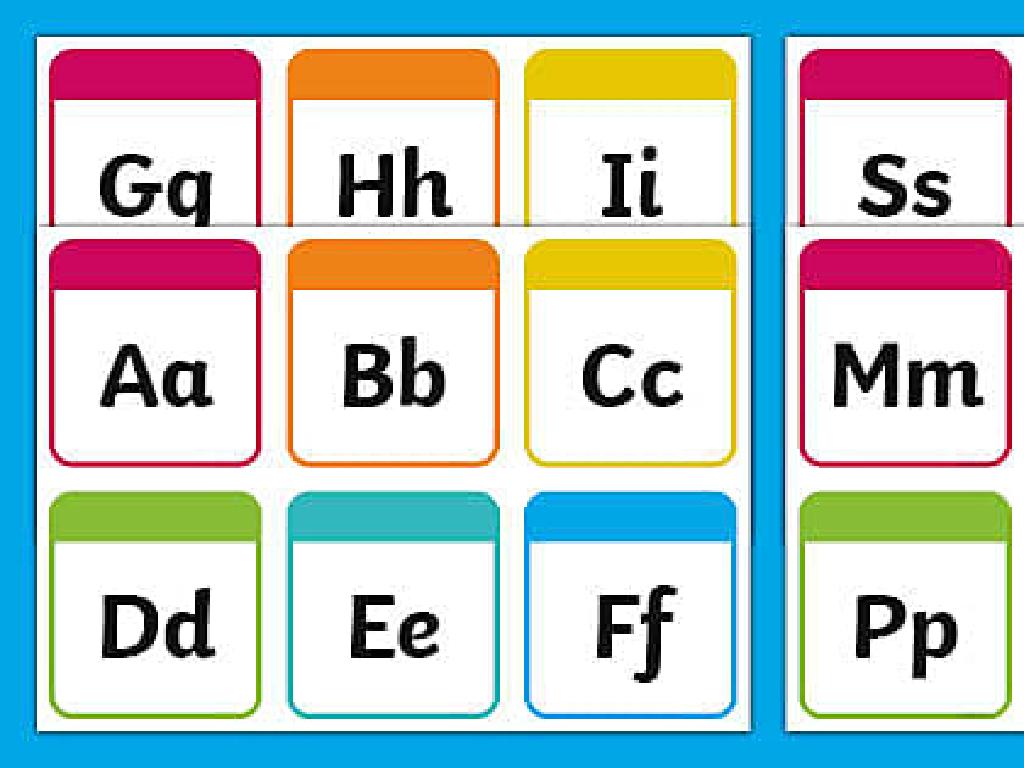Resources And Exam Preparation
Subject: Arts and humanities
Grade: High school
Topic: Ap /College Us Government And Politics
Please LOG IN to download the presentation. Access is available to registered users only.
View More Content
Navigating AP US Government and Politics Exam Prep
– Introduction to the AP Gov & Pol exam
– Resources for effective exam prep
– Textbooks, review books, online databases, and practice tests
– Understanding exam structure
– Sections: multiple-choice, FRQs, and their time allocations
– Grasping the scoring system
– 5-point scale scoring, importance of each section towards final score
|
This slide is designed to give students an initial understanding of the AP US Government and Politics exam and to outline the resources available for preparation. It’s crucial to emphasize the importance of familiarizing themselves with the exam’s structure, including the types of questions and time management. Additionally, understanding the scoring system is key to strategizing their study plan. Resources such as textbooks, review books, and online practice tests will be invaluable. Encourage students to use these resources to identify areas of strength and weakness. The goal is to build a solid foundation for their exam preparation journey.
AP US Government and Politics: Exam Overview
– Exam section breakdown
– The exam has multiple-choice and free-response sections.
– Timing & question count
– Multiple-choice: 55 questions in 80 minutes. Free-response: 4 questions in 100 minutes.
– Question types and scoring
– Multiple-choice: factual recall & application. Free-response: analytical essays, data analysis.
– Strategies for preparation
|
This slide provides a comprehensive overview of the AP US Government and Politics exam structure. Students should understand the two main sections: multiple-choice, which tests their knowledge and ability to apply concepts, and free-response, which assesses their analytical skills and ability to articulate arguments. The timing and number of questions are crucial for students to manage their exam time effectively. Discuss the types of questions and how they are scored to give students insight into the exam’s expectations. Finally, offer strategies for preparation, such as practicing with past exam papers, focusing on weak areas, and developing a study schedule.
AP US Government and Politics: Study Resources
– Recommended textbooks for foundational knowledge
– Texts like ‘American Government: Stories of a Nation’ for an engaging approach.
– Online platforms for practice and exams
– Websites like Khan Academy offer free practice questions.
– Government documents for real-world context
– Read foundational documents like the Constitution to understand governance.
– Supreme Court case summaries for legal insights
– Summaries of cases like ‘Marbury v. Madison’ explain judicial review.
|
This slide provides students with a comprehensive list of resources to prepare for the AP US Government and Politics exam. Recommended textbooks and review books are essential for building a strong foundation in the subject matter. Online platforms such as Khan Academy, Quizlet, and College Board’s own resources offer interactive practice questions and full-length practice exams that simulate the actual test environment. Government documents, including the Constitution, Bill of Rights, and Federalist Papers, provide students with a direct understanding of the US political system and its historical context. Lastly, reviewing Supreme Court case summaries helps students understand the practical application of the law and the role of the judiciary in shaping US politics. Encourage students to utilize a mix of these resources to enhance their learning experience and be well-prepared for the exam.
Strategies for AP Gov Exam Success
– Develop a study plan with goals
– Outline topics, allocate time, set achievable targets
– Master note-taking and summarization
– Use bullet points, headings, and summarize key points
– Engage in study groups
– Collaborate with classmates to review material
– Utilize peer discussions
– Exchange ideas and clarify doubts through discussion
|
This slide aims to equip students with effective study strategies for the AP US Government and Politics exam. A well-structured study plan helps in organizing the vast syllabus and setting clear, attainable goals. Emphasize the importance of good note-taking skills, which involve capturing essential information without overloading on details. Encourage students to form study groups as they provide a support system and facilitate collaborative learning. Peer discussions are also crucial as they help in reinforcing concepts and clearing misconceptions. Instruct students to actively engage with each other, challenge ideas, and debate topics to deepen their understanding of the subject matter.
Practice Makes Perfect: Test Prep Strategies
– Take regular practice tests
– Analyze results for improvement
– Review wrong answers to understand mistakes
– Seek feedback from teachers
– Constructive criticism helps identify blind spots
– Discuss with peers for insights
– Peer discussions can reveal new strategies and perspectives
|
This slide emphasizes the importance of practice tests in preparing for the AP/College US Government and Politics exam. Encourage students to take full-length practice tests under exam conditions to familiarize themselves with the format and timing. After each test, students should thoroughly analyze their results to pinpoint specific areas where they can improve. They should not hesitate to ask teachers for detailed feedback on their performance. Additionally, discussing practice tests with classmates can provide valuable insights and alternative approaches to difficult questions. This collaborative learning can also help in reinforcing content and fostering a supportive study environment.
AP Gov Exam: Strategies for Success
– Prep the night before
– Gather materials, review notes, and get a good night’s sleep.
– Morning of exam routine
– Eat a healthy breakfast, review key points, and arrive early.
– Time management tips
– Allocate time per section and keep track of the clock.
– Approaching tough questions
– Use process of elimination and consider all answer choices.
|
This slide aims to equip students with practical tips for the AP Government and Politics exam. Stress the importance of preparing the night before, such as organizing materials, reviewing high-yield notes, and ensuring a full night’s rest. On the morning of the exam, advise them to have a nutritious breakfast and to review key concepts to warm up their minds. Discuss time management strategies, like dividing the total exam time by the number of questions or sections to avoid spending too long on any one part. Finally, teach them methods for handling difficult questions, such as eliminating clearly wrong answers and making educated guesses when necessary. Encourage students to practice these strategies during mock exams to build confidence and improve performance.
Class Activity: Mini Mock Exam
– Engage in a mini mock exam
– Class discussion on answers
– Discuss why certain answers are correct and the reasoning behind them
– Reflect on the mock exam experience
– Share feelings about the exam process and difficulty
– Identify key takeaways
– Highlight important learning points and strategies for improvement
|
This class activity is designed to simulate the AP/College US Government and Politics exam environment. Students will participate in a shortened version of a mock exam to familiarize themselves with the question format and timing. After completing the exam, the class will engage in a group discussion to go over the answers and understand the rationale behind each one. This will help students to see common mistakes and learn the correct reasoning. Following the discussion, students will reflect on their performance, sharing their thoughts on the difficulty and their own preparedness. The teacher should guide the reflection to help students identify effective study strategies and areas that need more focus. Possible activities include peer review of answers, timed question challenges, or creating their own sample questions for additional practice.






